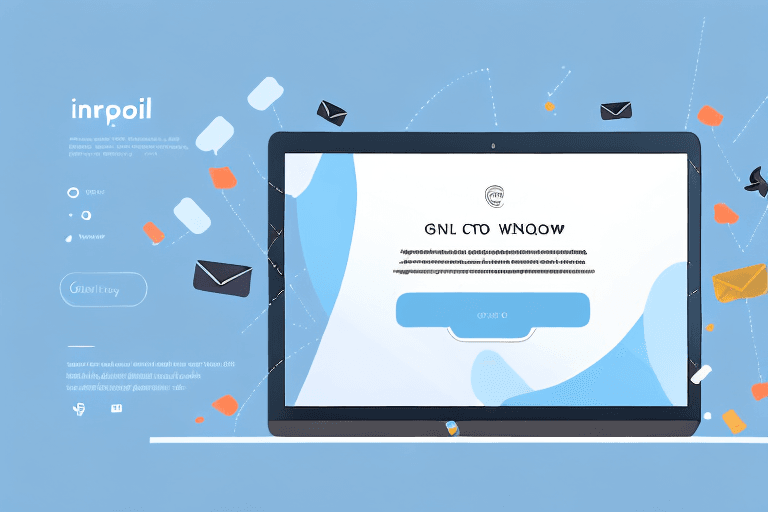Negotiating your salary can be a nerve-wracking experience, but it's crucial if you want to ensure you're getting paid what you're worth. With the right approach and tools, however, you can make the process smoother and more successful. One tool that can help you in this journey is a salary negotiation email template.
Understanding the Importance of Salary Negotiation
Before we dive into the specifics of using a salary negotiation email template, it's important to understand why negotiating your pay matters. Simply put, if you don't negotiate your salary, you are likely leaving money on the table. Employers often leave room for negotiation when making salary offers, and failing to take advantage of that room can lead to you being paid less than you deserve. Negotiating your salary can also help establish your value in the company and set you up for better compensation in the long run.
Why negotiating your salary matters
When negotiating your salary, you are essentially communicating to your employer that you know your worth and are willing to stand up for it. It sets a precedent that you value yourself and your contributions to the company, which can lead to higher compensation in the future. Negotiating your salary also puts you in a better financial position, which can have a positive impact on your overall wellbeing and job satisfaction.
Moreover, salary negotiation is not just about money. It is also about respect. When you negotiate your salary, you are showing your employer that you are confident, assertive, and willing to advocate for yourself. This can earn you respect and admiration from your colleagues and superiors, which can lead to better opportunities for growth and development within the company.
Furthermore, when you negotiate your salary, you are also setting a standard for yourself. You are demonstrating that you are not willing to settle for less than what you are worth, and that you are committed to achieving your goals and advancing in your career. This can help you build a reputation as a high-performing employee who is not afraid to take on new challenges and push themselves to succeed.
Common misconceptions about salary negotiation
Many people are hesitant to negotiate their salary, either because they are afraid of being rejected, or they believe it isn't appropriate. However, these are misconceptions. Negotiating your salary is not only appropriate, but it's also expected in many cases. Additionally, many employers are open to negotiations and are willing to work with you to find a mutually beneficial solution. It's important to know your worth and stand up for yourself during salary negotiations.
It's also important to note that salary negotiation is not just for new hires. Even if you've been with a company for a while, it's never too late to negotiate your salary. You may have taken on new responsibilities or achieved significant accomplishments since your last salary review, which could warrant a higher pay rate. Don't be afraid to bring up these achievements during your negotiations and make a case for why you deserve a raise.
Lastly, it's important to approach salary negotiations with a positive attitude and an open mind. Remember that negotiations are a two-way street, and your employer may have concerns or constraints that you are not aware of. Be willing to listen to their perspective and work together to find a solution that works for both parties. With the right mindset and preparation, salary negotiations can be a positive and productive experience for everyone involved.
Preparing for the Salary Negotiation
So, how do you prepare for a salary negotiation? There are several steps you can take to ensure you go into the conversation feeling confident and prepared.
Researching industry salary standards
The first step is to research industry salary standards. This will give you an idea of what you can reasonably expect to be paid for your position and experience. Look at job postings and salary surveys to get a sense of what others in your field are earning. Knowing this information can help you set realistic expectations and provide evidence for your salary request during the negotiation process.
It's important to note that salary standards can vary depending on location, company size, and other factors. Take these into consideration when researching industry standards and adjust your expectations accordingly.
Assessing your value and accomplishments
Next, it's important to assess your value and accomplishments within the company. Consider what you bring to the table in terms of skills, experience, and achievements. Highlight your contributions and how they have positively impacted the company. This will help you make a stronger case for a higher salary during the negotiation.
It's also important to consider any additional responsibilities or duties you have taken on since your initial salary was set. If you have taken on more work or have been promoted, this should be reflected in your salary.
Setting your salary expectations
After researching industry standards and assessing your value, it's time to set your salary expectations. Determine the salary range you feel comfortable with and that aligns with your research. Be prepared to justify this range during the salary negotiation.
It's important to keep in mind that salary negotiations are a two-way conversation. The employer may have their own salary range in mind, so be open to discussing and negotiating within a reasonable range.
Preparing for the negotiation conversation
Once you have researched industry standards, assessed your value, and set your salary expectations, it's time to prepare for the negotiation conversation itself. Practice your pitch and be prepared to provide evidence for your salary request. This can include specific accomplishments, industry standards, and any additional responsibilities you have taken on.
It's also important to be confident and assertive during the negotiation, while also remaining professional and respectful. Remember that the goal is to reach a mutually beneficial agreement.
Finally, be prepared to walk away if the employer is unwilling to meet your salary expectations. It's important to value your own worth and not settle for less than what you deserve.
Choosing the Right Salary Negotiation Email Template
When it comes to salary negotiation, it's important to be prepared and professional. One of the key components of a successful negotiation is a well-crafted email. In this digital age, emails have become a common mode of communication, especially when it comes to discussing sensitive topics like salary. In this article, we will discuss how to choose the right salary negotiation email template and customize it to fit your needs.
Factors to consider when selecting a template
Before selecting a template, it's important to consider the tone and language used. The email should be professional and assertive without being aggressive. It's important to strike a balance between being confident and respectful. Additionally, make sure the template covers the major points of the salary negotiation process, such as stating your case and suggesting a salary range.
Customizing the template to fit your needs
Once you have selected a template, it's important to customize it to fit your specific situation. This will ensure that the email feels genuine and authentic. Add in your personal information, such as your name and job title, and tailor the language to match your communication style. This will help you to establish a connection with the employer and make the negotiation process smoother.
Examples of effective salary negotiation email templates
Here's an example of a salary negotiation email template that effectively communicates your salary expectations:
- Greet the recipient and express your appreciation for the job offer. Dear [Employer Name],
Thank you for offering me the position of [Job Title]. I am excited about the opportunity to work with your esteemed organization.
-
State your case for a higher salary, demonstrating your value and accomplishments. Based on my research and experience, I believe that my skills and qualifications are worth more than the initial offer. During my tenure at [Previous Company], I was able to [Achievement 1] and [Achievement 2], which resulted in [Result 1] and [Result 2].
-
Suggest a specific salary range, taking into account industry standards and your own experience. After careful consideration, I would like to propose a salary range of [Proposed Salary Range]. This range is in line with industry standards and reflects my experience and qualifications.
-
Ask for a meeting to discuss the salary negotiation further and thank the employer for their time. I would appreciate the opportunity to discuss this further with you. Please let me know if we can schedule a meeting to discuss this in more detail. Thank you for your time and consideration.
Best regards,
[Your Name]
Remember, the key to a successful salary negotiation is to be confident, professional, and respectful. By following these guidelines and customizing your email to fit your specific situation, you can increase your chances of getting the salary you deserve.
Crafting Your Salary Negotiation Email
Now that you've chosen the right template and customized it, it's time to craft your salary negotiation email. Here are some tips for making the email effective:
Addressing the email recipient
Start the email by addressing the recipient by name and expressing gratitude for the job offer. This sets a positive and respectful tone for the negotiation.
Stating your case for a salary increase
In the body of the email, state your case for why you believe you deserve a higher salary. Use evidence from your research and accomplishments to support your argument. Be assertive but not confrontational.
Providing evidence of your accomplishments
Provide evidence of your accomplishments, such as tangible results you've achieved in your role. This helps demonstrate your value to the company and justifies your request for a higher salary.
Suggesting a specific salary range
Suggest a specific salary range based on your research and expectations. This shows that you've done your homework and have reasonable expectations for your pay. Be prepared to negotiate this range if necessary.
Expressing gratitude and maintaining professionalism
End the email by thanking the employer for their time and expressing your appreciation for the opportunity. Maintain a professional tone throughout the email and avoid becoming too emotional or confrontational.
Conclusion
Using a salary negotiation email template can be an effective tool for achieving the pay you deserve. By understanding the importance of salary negotiation, preparing for the negotiation, choosing the right template, and crafting an effective email, you can increase your chances of success. Remember to be confident, assertive, and professional throughout the negotiation process. With these tips in mind, you'll be well on your way to getting the best pay possible.




